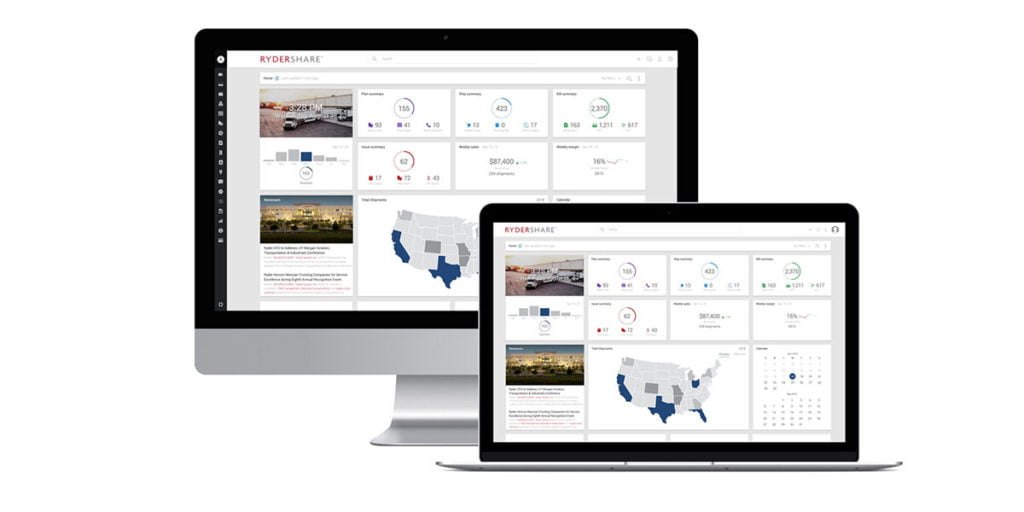In today’s world, sustainability is no longer a luxury but a necessity. As supply chain operations contribute significantly to the world’s carbon footprint, it’s crucial to implement sustainable practices to preserve our environment. And in this era of increasing awareness about eco-friendly business operations, one technology stands out as a game-changer – the Transportation Management System (TMS). This blog post will explore why a TMS, particularly a cloud-based one like that offered by Turvo, is integral to creating a green supply chain.
1. Optimizing Route Planning
One of the significant ways a cloud-based TMS promotes a green supply chain is by optimizing route planning. Traditional supply chain operations often involve trucks taking inefficient routes, leading to unnecessary fuel consumption and increased carbon emissions. However, with a cloud-based TMS, routes can be optimized for efficiency.
These systems use advanced algorithms and real-time data to determine the most efficient route. They take into account factors such as traffic conditions, roadworks, and even weather patterns to avoid unnecessary delays and detours. This efficiency in routing not only reduces fuel consumption and emissions but also enhances customer satisfaction through timely deliveries.
2. Consolidating Shipments
Another critical feature of a cloud TMS is its ability to consolidate shipments. This practice involves combining smaller loads into a larger shipment to maximize truck capacity and minimize the number of trips needed. By doing so, a TMS can significantly reduce the carbon footprint of your supply chain operations.
With the increased visibility provided by a cloud TMS, you can better coordinate and consolidate shipments, ensuring trucks are loaded to their optimum capacity. This reduction in trips translates into less fuel burned, lower emissions, and ultimately, a more sustainable and green supply chain.
3. Encouraging Modal Shift
A TMS can encourage a modal shift in transportation by helping companies explore and optimize various modes of transportation. Sometimes, shifting from road to rail or sea can result in a significant reduction in carbon emissions. While this might not be feasible for all types of goods or distances, having the capability to evaluate different modes is beneficial.
The sophisticated analysis offered by a cloud TMS like Turvo can assist businesses in making these modal decisions. By considering factors such as cost, time, and environmental impact, companies can choose the most efficient and sustainable transportation mode, contributing to a greener supply chain.
4. Reducing Paperwork
Implementing a cloud-based TMS also reduces the amount of paperwork involved in supply chain operations. Traditional methods require numerous paper documents for each shipment, contributing to deforestation and increased carbon emissions.
With a digital, cloud-based system, all the necessary documents are stored and accessed electronically, drastically reducing the need for paper. This digital transformation not only streamlines operations and enhances efficiency but also contributes significantly to a green supply chain.
5. Promoting Predictive Maintenance
Finally, a TMS can support predictive maintenance strategies for your fleet. By monitoring vehicle performance data, a TMS can predict when maintenance is required, preventing breakdowns and ensuring vehicles operate at their most efficient.
Vehicles that are well-maintained tend to consume less fuel and produce fewer emissions. By enabling proactive maintenance, a TMS helps maintain a more efficient, reliable, and green fleet.
In conclusion, a cloud-based TMS like the one offered by Turvo can be a powerful tool for businesses seeking to create a green supply chain. By optimizing route planning, consolidating shipments, encouraging modal shift, reducing paperwork, and promoting predictive maintenance, a TMS supports sustainable practices that can significantly reduce your supply chain’s environmental impact.
As consumers and regulators alike demand more sustainable practices from businesses, having a green supply chain isn’t just an environmental responsibility; it’s also a strategic advantage. So, make the smart choice and invest in a TMS to make your supply chain operations more efficient, cost-effective, and environmentally friendly.









